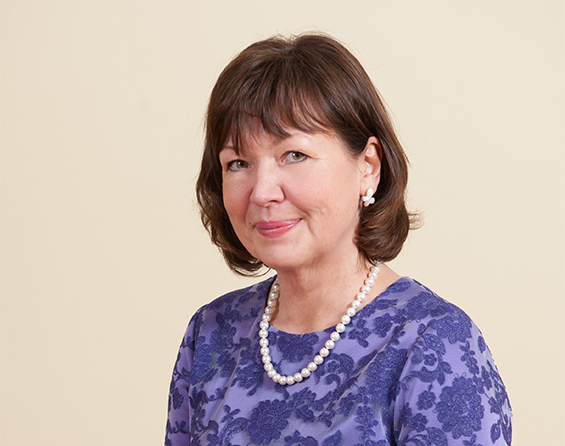
AI Profiileerimine: Heljo Pikhof
Päevakorrapunkte: 46
1030/1030 profiling (100.0%)
Sõnavõtte kokku: 173
Analüüsi periood: 2024-01-18 - 2025-09-24
Poliitiline positsioon
Poliitiku positsioon on järjepidevalt tugevalt sotsiaaldemokraatlik, keskendudes haridussüsteemi jätkusuutlikkusele, sotsiaalse ebavõrdsuse vähendamisele (sh loomeinimeste sotsiaalsed garantiid ja tööinimeste õigused) ning rahvuskultuuri infrastruktuuri arendamisele. Seisukohad on valdavalt väärtus- ja poliitikapõhised, rõhutades sotsiaalset õiglust, demokraatliku riigikorra kaitset ja riiklikku vastupidavust (nt varjumisvõimalused, T&A stabiilne rahastamine). 2025. aastal tugevnes positsioon terava opositsioonilise kriitikaga valitsuse ebaefektiivsuse ja viivituste osas nii sisejulgeoleku kui ka sotsiaal- ja keskkonnapoliitika valdkonnas.
Teemade ekspertiis
Poliitiku asjatundlikkuse tuumik on sügav ja detailne hariduspoliitika (koolivõrgu reform, kutseharidus, rahastusmehhanismid), mida toetab pidev viitamine PISA-le, Arenguseire Keskusele ja spetsiifilistele tehnilistele terminitele (nt mikrokvalifikatsioonid, 40:60 õppekava). Olulist ekspertiisi demonstreeritakse ka kultuurivaldkonna rahastusskeemide (Kultuurkapital, hasartmängumaks) ja loovisikute sotsiaalsete tagatiste reguleerimise osas, tuginedes nii seaduseparagrahvidele kui ka Mõttekoja Praxis uuringutele. Läbivalt on ta pädev seadusandluse menetlemise detailides ja komisjonitöös, kasutades argumentide põhjendamiseks konkreetseid statistilisi andmeid ning Euroopa võrdlevat praktikat, eriti töö- ja sotsiaalpoliitika küsimustes, mis 2025. aastal esile kerkisid.
Retoorriline stiil
Poliitiku retooriline stiil on püsivalt formaalne, detailne ja protseduuriline, kus argumentatsioon toetub vankumatult loogikale, faktidele, uuringutele ja statistikale, eriti seaduseelnõude tutvustamisel. Kuigi algtoon on sageli selgitav ja mõõdukalt optimistlik, muutub see sotsiaalsete kriiside (nt haridus, vaimne tervis, turvalisus) või valitsuse ebakompetentsuse teemadel teravaks, süüdistavaks ja konfronteerivaks, eriti 2025. aasta perioodil. Emotsionaalseid apelle (pathos) kasutatakse strateegiliselt, et rõhutada teemade kiireloomulisust ja hoiatada hukatuslike tagajärgede eest, mida võimendatakse tugevate metafooride ("raha kaob kui mutiauku") ja autoriteetsete tsitaatide abil.
Tegevusmustrid
Poliitiku tegevusmuster on Riigikogu istungjärkude ajal püsivalt kõrge ja intensiivne, eriti kevadistel ja sügisestel tippperioodidel, mil ta esineb sageli mitmel istungipäeval nädalas. Tema domineeriv roll on Kultuurikomisjoni juhtivkomisjoni esindaja, kes vastutab seadusloome protseduurilise juhtimise, detailsete aruannete esitamise ja eelnõude lõpphääletusele viimise eest. Tegevus näitab tasakaalu seadusandliku juhtimise (sh pikaajalise sisulise ettevalmistuse ja uuringute tellimise) ning valitsuse kontrollimise vahel, osaledes aktiivselt küsimustevoorudes ja esitades tihedalt arupärimisi sotsiaal-, haridus- ja eelarveteemadel.
Opositsiooni hoiak
Poliitiku vastasseis on suunatud peamiselt valitsusele ja Reformierakonna ministritele, keda kritiseeritakse laia spektriga teemadel, alates haridus-, kaitse- ja keskkonnapoliitikast kuni parlamendi protseduurilise ebavõrdse kohtlemiseni. Kriitika on järjepidevalt nii sisuline (poliitika ebaefektiivsus ja kahjulikkus) kui ka protseduuriline (menetluslikud vead, analüüsi puudumine ja obstruktsioon). Rünnakute intensiivsus kasvas 2025. aastal märgatavalt, liikudes süsteemsetelt puudujääkidelt teravate isiklike rünnakuteni, mis seadsid kahtluse alla valitsuse usaldusväärsuse, pädevuse ja aususe, ulatudes ministri tagasiastumise nõudmiseni.
Koostööstiil
Poliitiku koostööstiil on tugevalt institutsionaalne ja komiteepõhine, rõhutades järjepidevalt konsensuslikke otsuseid komisjonide tasandil ning kollegiaalset meeskonnatööd. Tema tegevust iseloomustab laialdane huvirühmade (omavalitsused, haridus- ja loomeorganisatsioonid) kaasamine seadusloome protsessi, püüdes leida tasakaalustatud ja kaasavaid lahendusi. Kuigi poliitik esindab kindlalt Sotsiaaldemokraatide programmilisi seisukohti, otsib ta aktiivselt erakondadeülest toetust sotsiaalpoliitilistele algatustele, viidates valmisolekule laiapõhjaliseks heakskiiduks. Samas on ta ideoloogilistes küsimustes ja valitsuse koostöövõime kritiseerimisel terav, näidates kompromissivalmidust peamiselt protseduurilistes küsimustes.
Regionaalne fookus
Poliitiku fookus on valdavalt riiklik ja rahvusvaheline, keskendudes üleriigilisele seadusandlusele, sotsiaalpoliitikale ja Eesti positsioonile Euroopas. Regionaalne fookus on episoodiline, kuid tugev, ilmudes teravalt kahel perioodil (01.2024 ja 09.2025), mil rõhutatakse maapiirkondade arengut, maakoolide säilitamist, kiire interneti vajadust ja Lõuna-Eesti turvalisust. Linnadest tõstetakse esile Tallinna, Tartut ja Narvat, peamiselt riiklikult tähtsate kultuuriehitiste (SÜKU, Estonia, Narva) kontekstis. Üldine regionaalne teema on ebavõrdsuse kriitika, vastandades suurlinnade (Tallinn, Tartu) ja maapiirkondade olukorda hariduse ja teenuste kättesaadavuses.
Majandusvaated
Majandusvaated keskenduvad inimkapitali arendamisele, rõhutades hariduse tõhusa rahastamise ja teadus-arendustegevuse (nõutav 1% SKP-st) stabiilsuse kriitilist rolli majanduse konkurentsivõime tagamisel. Fiskaalpoliitikas toetatakse sotsiaalkaitse laiaulatuslikku laiendamist, eriti loomeinimeste sotsiaalgarantiide loomist, rahastades seda sihipäraselt hasartmängu- ja aktsiisimaksude tõusust saadud tuludega. Poliitik on tugevalt tööjõu huvide kaitsja, propageerides töö- ja eraelu tasakaalu parandamist (nt tasustatud vaba päev), uskudes, et see on majandusele kasulik, ning toetab samal ajal riiklikku sekkumist (nt inkassofirmade regulatsioon, ehitusnõuded) ja nõuab õiglast, maksustamata kompensatsiooni eraomandi piiramise eest.
Sotsiaalsed küsimused
Poliitiku sotsiaalpoliitiline profiil on tugevalt suunatud sotsiaalse ebavõrdsuse vähendamisele, rõhutades haridussüsteemi reformi kui peamist vahendit sissetulekupõhiste lõhede ületamiseks alusharidusest elukestva õppeni, toetades süsteemseid meetmeid nagu sotsiaalse tausta kompenseerimine ja diferentseeritud rahastus. Ta on järjekindel sotsiaalse turvavõrgu laiendamise eestkõneleja, nõudes universaalset ravikindlustust ja sotsiaalsete garantiide tagamist ebaregulaarse sissetulekuga ning vabakutselistele loomeinimestele, ning rõhutab tööinimeste õigusi puhkusele ja sotsiaalsele toetusele. Lisaks tegeleb profiil aktiivselt noorte vaimse tervisega seotud probleemidega (nutiseadmete reguleerimine), naiste õiguste ja soolise õigluse teemadega ning rõhutab kiiret eestikeelset integratsiooni vältimaks ühiskonna getostumist. Poliitik seob rahva turvatunde ja ärevuse otseselt riigi sise- ja tsiviiljulgeoleku tugevusega, kritiseerides valitsuse tegevust, mis tema hinnangul turvalisust nõrgestab.
Seadusandlik fookus
Poliitiku seadusandlik tegevus keskendub valdavalt haridus- ja teadusreformidele, olles aktiivne eestvedaja õppimiskohustuse pikendamise, elukestva õppe süsteemi loomise ning TAI ja teadusasutuste regulatsioonide korrastamise osas. Oluline prioriteet 2024. aastal oli Kultuurkapitali seaduse muutmine, et tagada loomeinimeste sotsiaalkaitse ja riiklikult tähtsate kultuuriehitiste rahastamise paindlikkus. Poliitik tegutseb järjepidevalt reformide algataja ja tugeva toetajana, laiendades 2025. aastal fookust ka sotsiaalpoliitilistele teemadele, nagu nädalavahetusele langevate riigipühade kompenseerimise eelnõu korduv esitamine. Üldiselt on tegemist süsteemsete muudatuste eestvedajaga, kes rõhutab menetluslikku korrektsust ja on valmis olema valitsuse eelnõude kriitiline oponent.